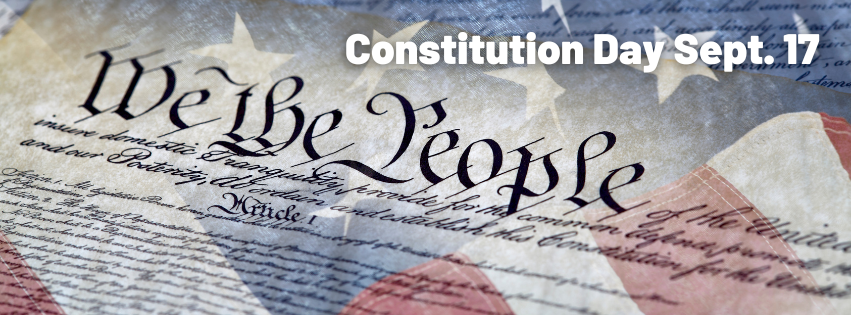from a member
Members of The Democratic Party, the oldest political party in the world, are recognized as being the foremost champions of preserving, protecting, and defending the US Constitution and the rights of all Americans enshrined within. We understand that in order to best protect the US Constitution, we must all be familiar with this document. We invite all patriotic Americans to join the Cherokee Democratic Party in celebrating Constitution Day, September, 17, by rereading the US Constitution.
An excellent online version of our Constitution can be found at our country’s National Archives
We also invite everyone to read a short excerpt from the essay “A Republic If You Can Keep It”, the full version of which is posted at the National Constitution Center. The National Constitution Center is also the host location for the Presidential Debate on Tuesday, September 10th, 2024.
Perspectives on the Constitution: A Republic, If You Can Keep It
By Richard R. Beeman, Ph.D.
While today we marvel at the extraordinary accomplishment of our Founding Fathers, their own reaction to the US Constitution when it was presented to them for their signatures was considerably less enthusiastic. Benjamin Franklin, ever the optimist even at the age of 81, gave what was for him a remarkably restrained assessment in his final speech before the Constitutional Convention: “…when you assemble a number of men to have the advantage of their joint wisdom, you inevitably assemble with those men, all their prejudices, their passions, their errors of opinion, their local interests, and their selfish views.” He thought it impossible to expect a “perfect production” from such a gathering, but he believed that the Constitution they had just drafted, “with all its faults,” was better than any alternative that was likely to emerge.
Nearly all of the delegates harbored objections, but persuaded by Franklin’s logic, they put aside their misgivings and affixed their signatures to it. Their over-riding concern was the tendency in nearly all parts of the young country toward disorder and disintegration. Americans had used the doctrine of popular sovereignty–“democracy”–as the rationale for their successful rebellion against English authority in 1776. But they had not yet worked out fully the question that has plagued all nations aspiring to democratic government ever since: how to implement principles of popular majority rule while at the same time preserving stable governments that protect the rights and liberties of all citizens.
Few believed that a new federal constitution alone would be sufficient to create a unified nation out of a collection of independent republics spread out over a vast physical space, extraordinarily diverse in their economic interests, regional loyalties, and ethnic and religious attachments…
The American statesmen who succeeded those of the founding generation served their country with a self-conscious sense that the challenges of maintaining a democratic union were every bit as great after 1787 as they were before…
To be sure, the US Constitution itself has not only survived the crises confronting it in the past, but in so doing, it has in itself become our nation’s most powerful symbol of unity–a far preferable alternative to a monarch or a national religion, the institutions on which most nations around the world have relied. Moreover, our Constitution is a stronger, better document than it was when it initially emerged from the Philadelphia Convention. Through the amendment process (in particular, through the 13th, 14th, 15th and 19th Amendments), it has become the protector of the rights of all the people, not just some of the people….
The conditions that threaten to undermine our sense of nationhood, bound up in the debate over slavery and manifested in intense sectional conflict during the pre-Civil War era, are today both more complex and diffuse. Some of today’s conditions are part of the tragic legacy of slavery–a racial climate marked too often by mutual mistrust and misunderstanding and a condition of desperate poverty within our inner cities that has left many young people so alienated that any standard definition of citizenship becomes meaningless. More commonly, but in the long run perhaps just as alarming, tens of millions of Americans have been turned-off by the corrupting effects of money on the political system. Bombarded with negative advertising about their candidates, they express their feelings of alienation by staying home on election day.
If there is a lesson in all of this it is that our Constitution is neither a self-actuating nor a self-correcting document. It requires the constant attention and devotion of all citizens. There is a story, often told, that upon exiting the Constitutional Convention Benjamin Franklin was approached by a group of citizens asking what sort of government the delegates had created. His answer was: “A republic, if you can keep it.” The brevity of that response should not cause us to under-value its essential meaning: democratic republics are not merely founded upon the consent of the people, they are also absolutely dependent upon the active and informed involvement of the people for their continued good health.
Dr. Richard Beeman – professor of history and dean of the College of Arts and Sciences at the University of Pennsylvania. The University is NCC’s academic partner, and for the year 1997 – 98, Dr. Beeman served as vice chair of the NCC’s Distinguished Scholars Advisory Panel.



